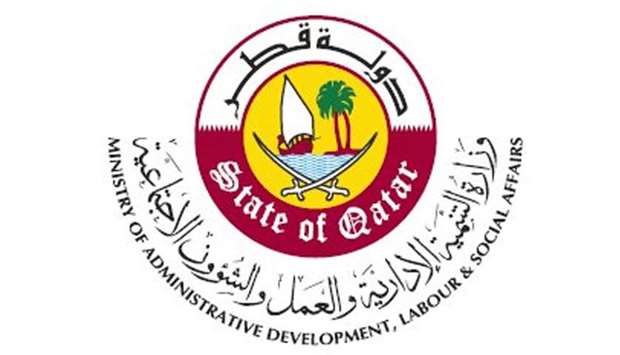The seminar dealt with the latest developments and reforms undertaken by Qatar and the steps it has taken to mitigate the impact of Covid-19 on migrant workers.
Speaking at the seminar, Mohamed Hassan al-Obaidly, Assistant Undersecretary for Labour Affairs at the ministry, thanked the business councils and chambers of commerce in Qatar for organising the seminar, which is an opportunity to communicate with the business community and discuss the latest developments of the technical co-operation programme between the MADLSA and the International Labour Organisation (ILO), and to present legislative reforms in the labour sector and the efforts made by the ministry during this period to face the challenges of the Covid 19 crisis.
Al-Obaidly said: “Since the beginning of implementation of the technical co-operation programme with the International Labour Organisation (ILO) during 2018, the State had managed to modernise an advanced legislative system aimed at enhancing decent work and protecting workers rights, as part of the priorities of the Qatar National Vision 2030 and in line with the sustainable development goals of the United Nations.”
He added: “During the recent period, several legislative reforms were adopted, the most important of which was the cancellation of the exit permit for workers in the private sector subject to the provisions of the Qatari labour law, where they could leave the country temporarily or permanently during the validity of the work contract, as well as cancelling the exit permit for domestic workers and workers in ministries and other government departments and public bodies and institutions, as well as the establishment of a fund to support and insure workers that guarantees speedy payment of their financial dues and benefits both private sector workers and domestic workers.”
Al-Obaidly noted that, as a continuation of these efforts, the Cabinet agreed on October 16, 2019 to issue a draft law to set controls to facilitate the movement of workers to another employer during the contract period in a manner that preserves the rights of both parties and allows migrant workers to move in the labour market with controls consistent with the international labour standards.
He said that the Cabinet also approved a draft law regulating the minimum wage, and this law is the first of its kind in the Gulf region, where the law obliges employers to provide decent food and accommodation for workers in addition to the basic wage, including domestic workers.
The draft law also included the establishment of a committee for minimum wage, which monitors the impact of the minimum wage and proposes adjustments on a periodic basis.
Al-Obaidly affirmed that the MADLSA seeks to continue the technical co-operation programme with the ILO and co-ordination and joint work in order to achieve the goals that have been agreed upon, and the importance of this partnership was particularly evident during the Covid-19 crisis, where the ministry works in close co-operation with the ILO office in Doha to support the State’s efforts and adopt good practices to respond to this pandemic.
He explained that this co-operation appears through the preparation of an educational flyer for workers in several languages entitled “your health and work” that includes the basic information for workers in light of the crisis and answers most of their common inquiries, was published through newspapers, audio-visual media and the ministry’s social media (Facebook and Twitter), in addition to preparing guidelines for organising “remote” work for workers and employers to regulate their rights and duties and how to agree on appropriate working and contact times during the remote work period as well as organising remote training workshops on the responsibilities of labour committees in the field of occupational health and safety during the coronavirus crisis, and issuing an informative publication in 11 languages for workers.
Al-Obaidly explained in this regard that the labour committees include representatives of the company’s management and elected representatives of the workers, noting that the importance of these committees emerged in light of the Covid-19 crisis, as addressing the social and economic challenges of the pandemic requires full co-operation between all parties concerned, which includes the ministry, employers, and workers.
He pointed out that a virtual meeting was organised for the hospitality sector on responding to the Covid-19 consequences with the participation of the Ministry of Interior and the Ministry of Commerce and Industry, to clarify the rights and obligations of workers and employers during this period, and appropriate solutions to overcome the crisis.
He added that a symposium was also organised for owners of small and medium-sized companies in the country on the Covid-19 economic response plan.
The symposium aimed at exchanging ideas on short-term measures to support these companies and protect employment in light of the crisis, besides discussing best practices that governments and employers follow to support these companies.
He explained that the symposium concluded with the formation of a working group from all sides to achieve a comprehensive response to the crisis and sustainable ways to recover through teamwork and ensure effective implementation.

